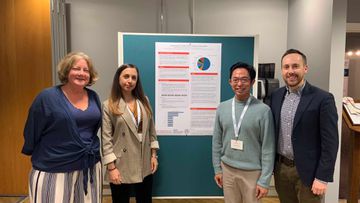Review of Quality of Life of UK MS Patients
Background:
The Constitution of the World Health Organization (WHO) defines health as "A state of complete physical, mental, and social well-being not merely the absence of disease . . .". It follows that the measurement of health and the effects of health care must include not only an indication of changes in the frequency and severity of diseases but also an estimation of well being and this can be assessed by measuring the improvement in the quality of life related to health care.
Although there are generally satisfactory ways of measuring the frequency and severity of diseases this is not the case in so far as the measurement of well being and quality of life are concerned. WHO, with the aid of 15 collaborating centres around the world, has therefore developed two instruments for measuring quality of life (the WHOQOL-100 and the WHOQOL-BREF), that can be used in a variety of cultural settings whilst allowing the results from different populations and countries to be compared. These instruments have many uses, including use in medical practice, research, audit, and in policy making. (1)
WHO defines Quality of Life as an individual's perception of their position in life in the context of the culture and value systems in which they live and in relation to their goals, expectations, standards and concerns. It is a broad ranging concept affected in a complex way by the person's physical health, psychological state, personal beliefs, social relationships and their relationship to salient features of their environment. (1) The intention of the project is to review 4 key areas of quality of life in the specific group of MS UK patients, please see below the list of the 4 categories with subcategories of WHOQOL and WHOQOLBREF form used.
More MS Academy Comprehensive care Projects

Encouraging excellence, developing leaders, inspiring change
MS Academy was established in 2016 and in that time has accomplished a huge amount with exciting feedback demonstrating delegates feel inspired and energised along their personal and service development journeys. The various different levels of specialist MS training we offer are dedicated to case-based learning and practical application of cutting edge research.